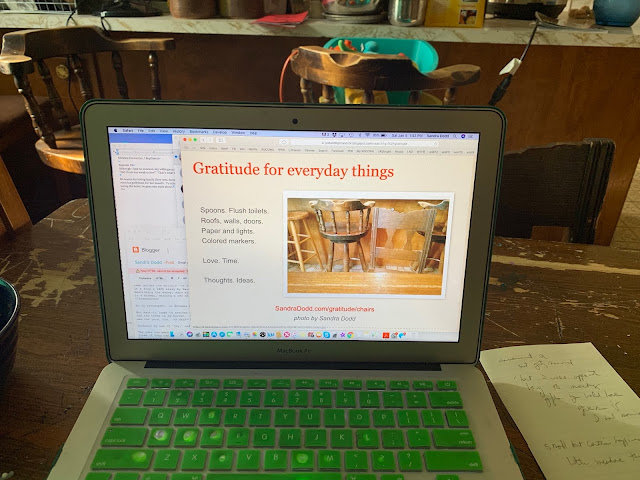Abundance and gratitude

"If it's not one thing, it's another."
People usually say that of problems or frustrations. But what about gourds, and little girls, and music, and humor?
If you practice finding abundance, if it's not one thing, it will be another.
photo by Cátia Maciel


